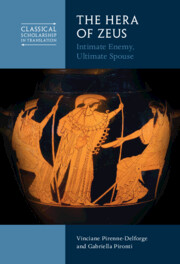Recent decades have witnessed a near-consensus of critical opinion (1) that the idea of God's creation of matter ‘out of nothing’ is not affirmed in scripture, but instead (2) originated in a second-century Christian reaction against Gnosticism's convictions about matter as evil and creation as the work of an inferior Demiurge. (3) Judaism's interest, by contrast, was generally deemed late and philosophically derivative or epiphenomenal upon Christian ideas. This essay re-examines all three convictions with particular reference to the biblical creation accounts in Palestinian Jewish reception. After highlighting certain interpretative features in the ancient versions of Genesis 1, this study explores the reception of such ideas in texts like the Dead Sea Scrolls and early rabbinic literature. It is clear that the typically cited proof texts from biblical or deutero-canonical books indeed do not yield clear confirmation of the doctrine they have sometimes been said to prove. Genesis was understood even in antiquity to be somewhat ambiguous on this point, and merely to say that creation gave shape to formlessness need not entail any creatio ex nihilo. This much seems uncontroversial. Nevertheless, closer examination also shows that the Scrolls and the rabbis do consistently affirm Israel's God as the creator of all things, explicitly including matter itself. Graeco-Roman antiquity axiomatically accepted that ‘nothing comes from nothing’, which also meant the pre-existence of matter. To be sure, the conceptual terminology of ‘nothingness’ came relatively late to Christians, and even later to Jews. Yet the substantive concern for God's free creation of the world without recourse to pre-existing matter is repeatedly affirmed in pre-Christian Jewish texts, and constitutes perhaps the single most important building block for the emergence of an explicit doctrine of ‘creation out of nothing’. In its Jewish and Christian origins, therefore, the idea of creatio ex nihilo affirms creation's comprehensive contingency on the Creator's sovereignty and freedom. This in fact is a point which has been rightly and repeatedly accented in both historic and modern Christian theology on this subject (e.g. by K. Barth and E. Brunner, J. Moltmann and C. Gunton). Well before its explicit articulation in dialogue with Hellenistic philosophy, the doctrine of God's creation of all matter was rooted in biblical texts and their Jewish interpretation, which in turn came to be refined and enriched through Christian–Jewish dialogue and controversy.
